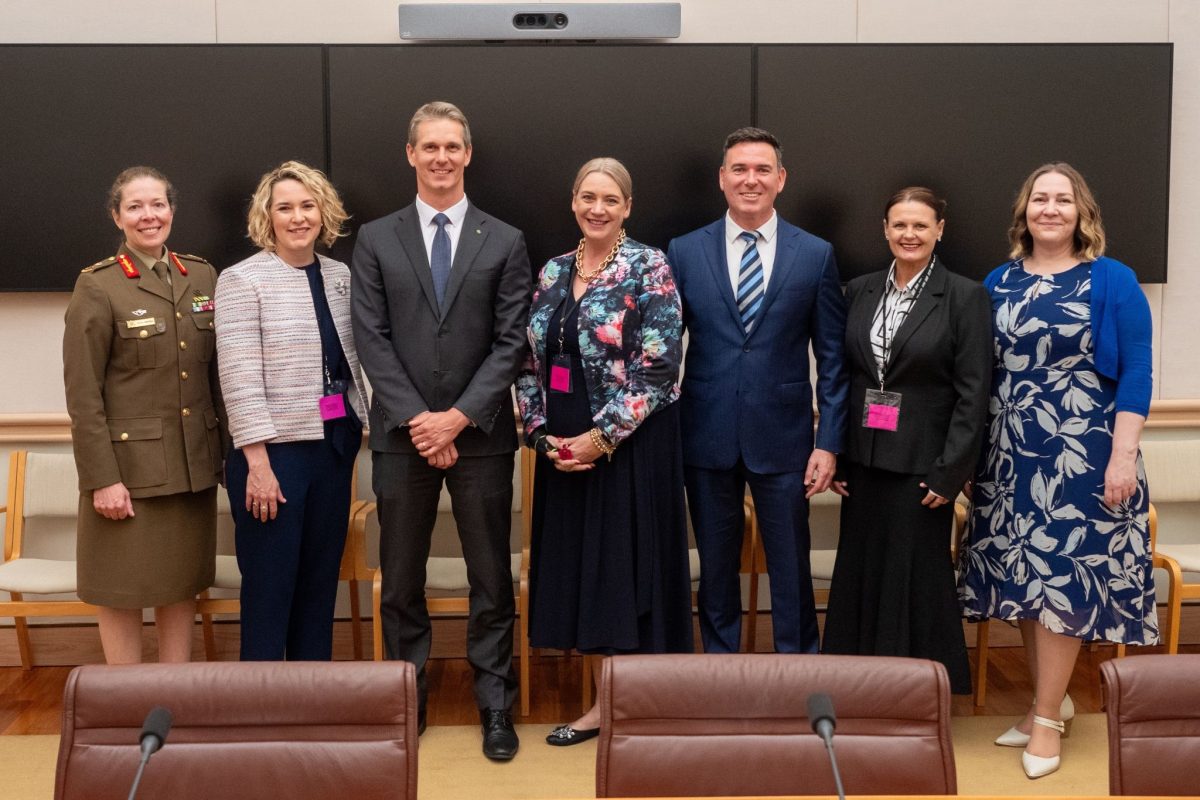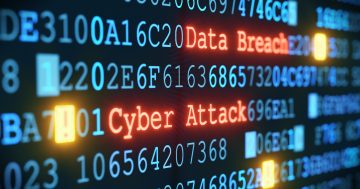
Australian Cyber Network launched at Parliament House on Wednesday: National Cyber Security Coordinator Michelle McGuiness, Annie Haggar (ACN Board Member), Special Envoy for Cyber Security Dr Andrew Charlton, Kylie Watson (ACN Board Member), Jason Murrell (ACN Chair), Miranda Mears (ACN Board Member) and Linda Cavanagh (ACN CEO). Photo: ACN.
Australian Cyber Network (ACN), a new not-for-profit focussing on cybercrime has been launched at Parliament House to replace the old government-funded AustCyber.
The NGO will be led by former AustCyber executives Linda Cavanagh and Jason Murrell, who will lobby for the cybersecurity industry while also offering business advisory services.
Cyber threats are escalating at an alarming rate in Australia, with more than 94,000 cybercrime incidents reported last financial year, a 23 per cent increase.
That equates to one report every six minutes. Small businesses bear a significant financial burden, with the average cost of a cyber incident reaching $46,000.
For medium businesses, it’s even higher at $97,200, underscoring the urgent need for robust, coordinated cyber defences.
Federal MP Andrew Charlton launched the new organisation, saying it will focus on advocacy, capability building, and education to meet both the current and future needs of Australia’s cybersecurity sector.
“Cybercrime is the most significant shift in criminal activity since the handgun, and yet we are still operating without the basic safety infrastructure in the digital world that protects us in the physical one,” Dr Charlton said.
“The launch of the Australian Cyber Network marks a new era of collaboration between government and industry to build the digital defences our businesses and communities need.”
Ms Cavanagh said Australia needed a “voice for industry, by industry” to drive the future of cyber security across the country.
“It’s critical that we not only support the industry of today but the next generation of innovation in Australian cyber security technology,” she said.
The ACN’s model has four themes – maturity, advocacy, outreach, and insight – to push evidence-based research in the effort to counter cybercrime attacks in Australia.
Mr Murrell said the transition from AustCyber to the Australian Cyber Network was about more than just a name change.
“The ACN will also act as a bridge between Australian industry and global cyber security initiatives, ensuring Australia plays a leading role in shaping international cyber standards and solutions,” he said.
“We’re not just shaping policy; we’re helping shape careers and the future of the cyber security workforce in Australia.
“We are driving a future where Australia is not just a participant in the global cyber security landscape, but a leader.
“In a sector that’s evolving rapidly, we need to constantly push for collaboration between industry, government and academia.”
Australia’s National Cyber Security Coordinator, Lieutenant General Michelle McGuinness, also addressed the launch.
“Sovereign capability is critical to the strength and resilience of our nation,” she said.
“The more we make and do in Australia, the less reliant we are on potentially insecure supply chains or supply chains we can’t control or verify.
“When we build sovereign capability, we are less vulnerable to unexpected global surprises, giving us greater security and greater autonomy.
“We can build this sovereign capability through genuine partnership between government and industry and developing a world-class cyber workforce to protect our economy, our security, our prosperity and our way of life.”
The birth of the new NGO came as new laws were introduced to parliament aiming, among other things, to require businesses to report any ransomware payments they make to hackers.
Described as “unprecedented legislation”, the Federal Government is delivering Australia’s first stand-alone cyber security act.
Cyber Security Minister Tony Burke said the creation of a cyber security act is a “long-overdue step for our country” and reflects the government’s deep concern and focus on cyber threats.
“This legislation ensures we keep pace with emerging threats, positioning individuals and businesses better to respond to, and bounce back from cyber security threats,” Mr Burke added.
“To achieve Australia’s vision of being a world leader in cyber security by 2030, we need the unified effort of government, industry and the community.”
If the legislation passes, new laws will introduce new minimum cyber security standards for all smart devices, including watches.
A new cyber incident review board will be created, and companies will be urged to share private information with government agencies and address their own risk management deficiencies. They would also be required by law to report the details of all instances of ransoms being paid following cyber hacks on their businesses.





















